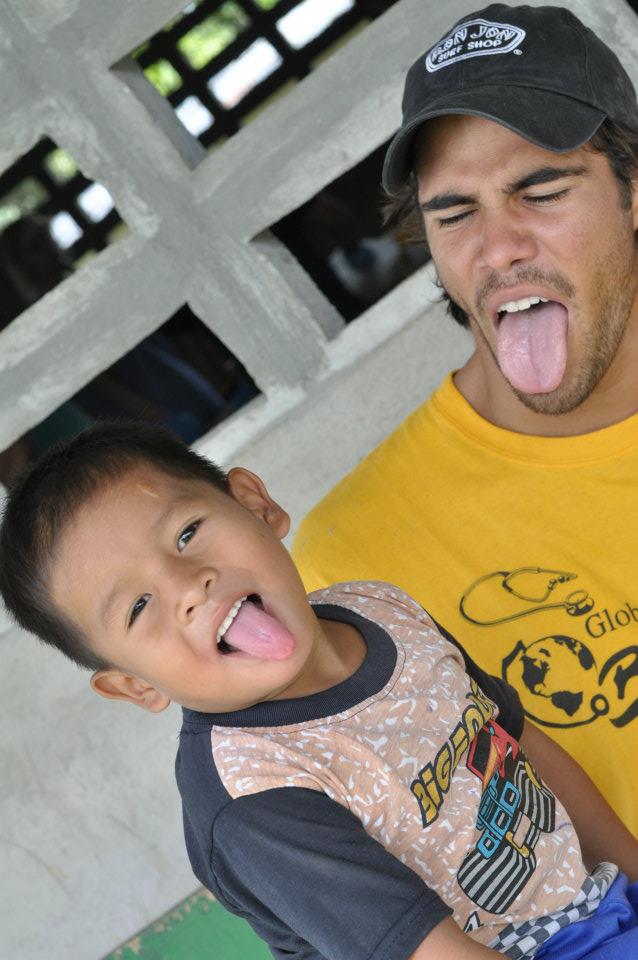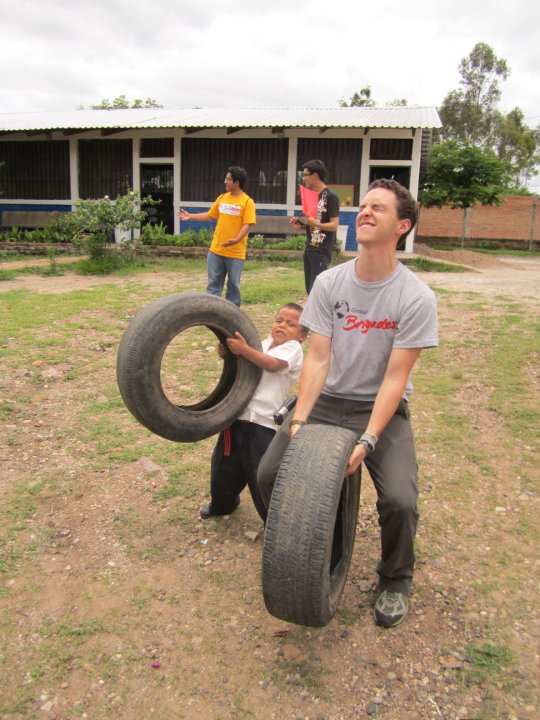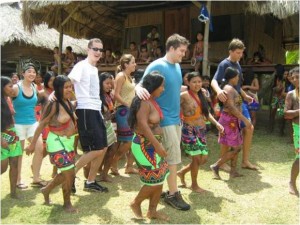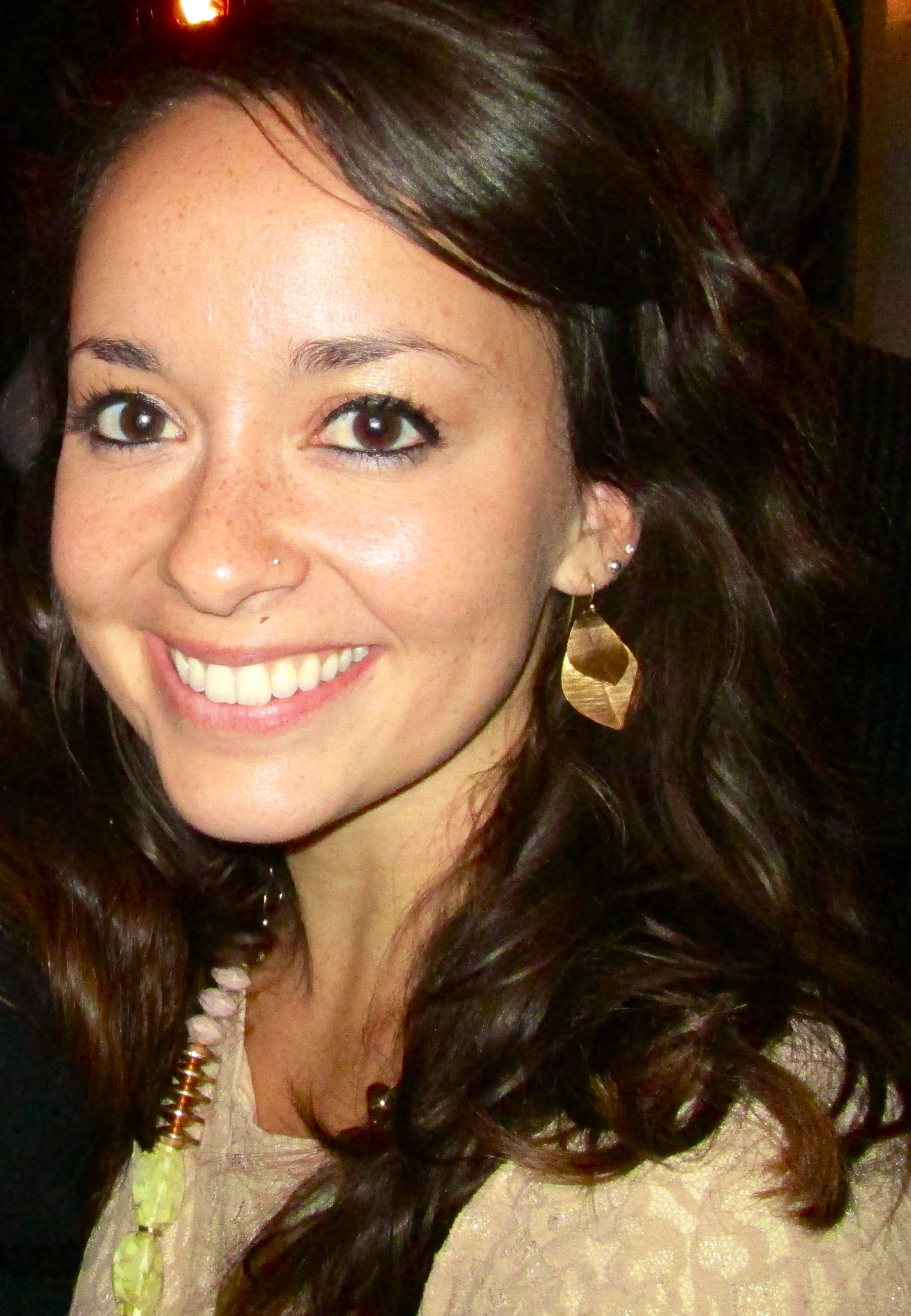What is it like working for Global Brigades? Oscar Valencia worked with our Medical Brigades program in Panama and reflects on his experiences working with rural community members and what he learned. Oscar is currently working in Peru with WAVES for Development, a GB associate organization.
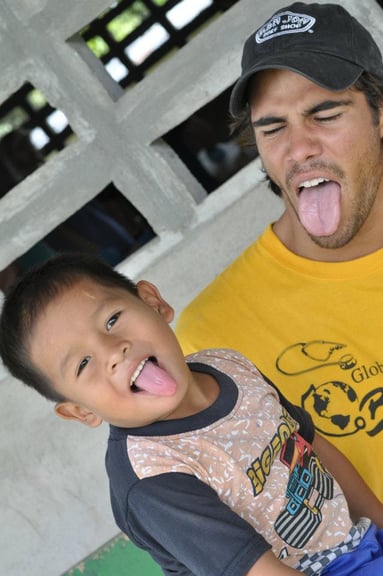 During my two years working with Global Brigades, I worked with other young people from different parts of the US and Canada. It was a fulfilling experience and I learned so much from the staff. I also had the opportunity to share my Panamanian culture and country with them. During those two years, I had many different roles, but the one that I consider to be the most important was as the Medical Brigades Program Lead.
During my two years working with Global Brigades, I worked with other young people from different parts of the US and Canada. It was a fulfilling experience and I learned so much from the staff. I also had the opportunity to share my Panamanian culture and country with them. During those two years, I had many different roles, but the one that I consider to be the most important was as the Medical Brigades Program Lead.
We had just entered a new region in Eastern Panama to work in, and my primary goal was identifying new communities for Medical Brigades as well as creating relationships with the people of the community and the medical professionals that work in the region.
Global Brigades was my introduction to development work. I learned that development work is a slow process and that you gain experience from each step you take, and that each step takes you closer to defining the outcome of the project you are working on. With Global Brigades, we worked based off of a logic model and we had to adapt and change it every time we learned something new about the community, so that everything you pre-plan is subject to change based on the unique needs of each individual community.
Adapting yourself to each situation is a skill that I learn to be very helpful. The way you communicate varies when you are with the GB staff, with community members, and with local and foreign professionals. I had to learn how to bring their different backgrounds and culture together for the same goal. I think there are too many good memories from my time with Global Brigades to nail it down to just one. But one memory that pops into my head at the moment was on my final brigade day with UC Santa Cruz. We were visiting a Guna indigenous community called Wagandi. The original house we wanted to visit with was not ready to receive us so we went to the neighbor’s house. A single woman with her two grandsons lived there, however she spent most of her adult life working for a wealthy family in Panama City, where she lived in their house raising their children and cleaning it. In the city she had a hot shower, cable tv, a microwave, a refrigerator full of food, and good health care. Some months before our brigade, she decided to go back to her community to introduce her grandsons to their culture.When we came to visit, the woman had just finished cocking a pig head, the last part left for the week in a small fireplace under a palm tree hut. She dint have any of the luxuries that she had back in Panama City, but she had so much joy in her; she was happy and it made us reflect and realize that what we want to accomplish working with community members is not as much as what they are able to share with us and what we gain from them. This interaction changed my way of seeing how I should focus my work.
Right now I’m working in Northern Peru, with a GB associate NGO call WAVES for Development, which creates life-enriching experiences in coastal communities through Education programs and Surf Voluntourism programs that engage travelers.. In this position I am applying the best of my experience with GB to improve and develop new programs and to help identify and expand to new communities.

